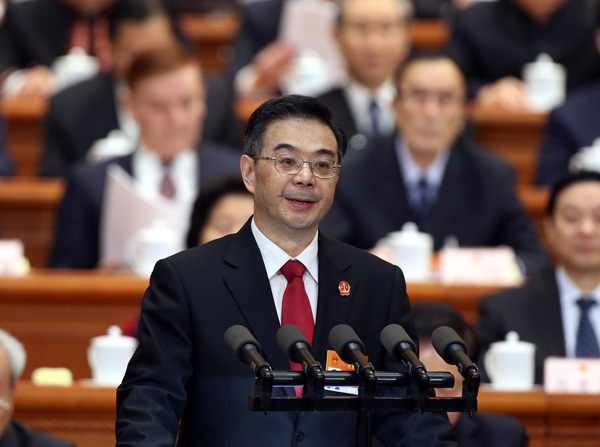Chief justice expresses self-reproach for wrongful convictions
Updated: 2015-03-12 09:42
(chinadaily.com.cn/Xinhua)
|
||||||||
Highlights of work report of Supreme People's Court
BEIJING - China's Chief Justice Zhou Qiang on Thursday expressed self-reproach for wrongful convictions and urged fellow judges to learn from them.
"We deeply reproach ourselves for letting wrongful convictions happen. Courts of all levels should learn a serious lesson from these cases," said Zhou, when delivering the work report of the Supreme People's Court (SPC) to the national legislature at the ongoing annual session.
The SPC will improve the mechanism to effectively prevent and correct wrongful convictions, he said.
In 2014, courts nationwide reheard 1,317 cases and corrected a number of wrongful ones, according to Zhou's report.
One of the high-profile wrongful convictions was a rape-murder case in 1996 by an Inner Mongolian court, in which an 18-year-old man named Huugjilt was convicted and executed. And 18 years later in December 2014, he was acquitted of the crimes.
The higher court of Inner Mongolia is investigating those responsible for Huugjilt's case and will hold them accountable, Zhou said.
Procurator-General Cao Jianming also stressed in his report Thursday that preventing wrongful convictions is a bottom line that prosecutors must always hold.
The Supreme People's Procuratorate (SPP) will perfect the protocol for prosecutors to supervise police investigation and detention of suspects and expand the channels for suspects in custody and inmates to appeal, Cao said when delivering the report to the national legislators.
The SPP is also researching on a system, in which appeals from suspects in custody and inmates can be handled by prosecutors of a different jurisdiction.
Procuratorates will impose stricter scrutiny on detention centers and prisons while working harder to stop the police from holding suspects for too long.
Law enforcement officers whose actions lead to wrongful conviction and death of suspects, such as extorting a confession through torture and breach of duty, will face serious prosecution, Cao warned.
Prosecutors themselves will strictly follow the protocol of collecting, examining and using the evidence.
They are asked to pay special attention to murder cases and others that are mainly established on confession and witness statement.
Prosecutors should work to stop a case "tainted" by unclear facts, lack of evidence or unlawful procedure, from going to the court, Cao said.
He also urged prosecutors to protect lawyers' legal rights and listen to their opinions.
The SPP will blacklist and punish prosecutors who abuse their power and promptly correct their wrongdoings, Cao stressed.
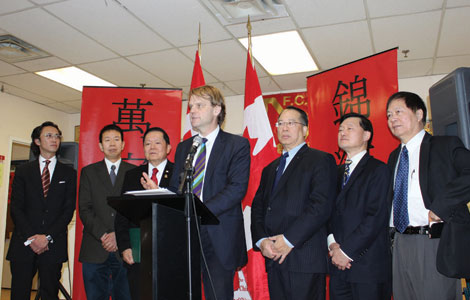
 Across Canada March 13
Across Canada March 13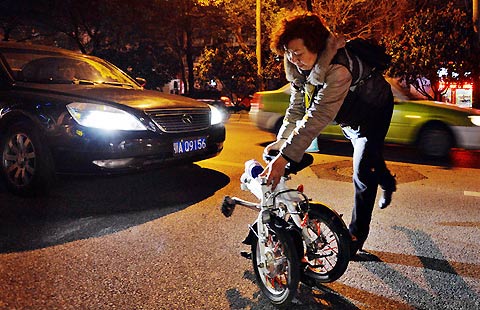
 Night life with a difference
Night life with a difference
 Top 8 symptoms of being a smartphone addict
Top 8 symptoms of being a smartphone addict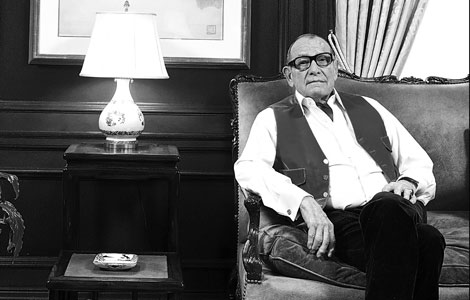
 Christie's to auction landmark Chinese collection
Christie's to auction landmark Chinese collection
 Chinese manufacturers keeping Apple Watch ticking
Chinese manufacturers keeping Apple Watch ticking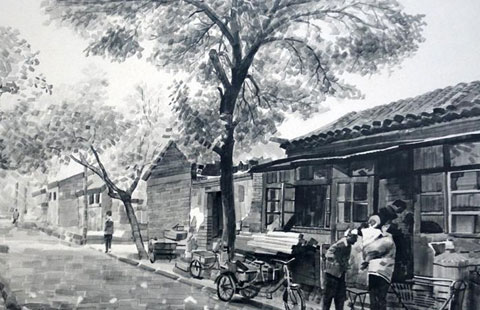
 Hutong culture captured on porcelain plates
Hutong culture captured on porcelain plates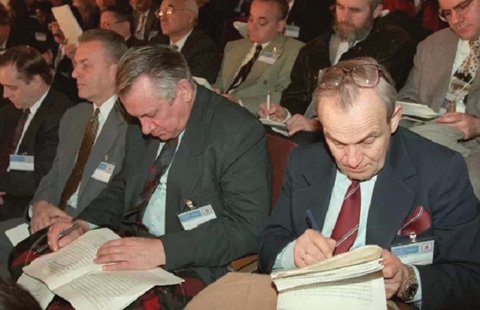
 Foreigners at the 'two sessions' over the years
Foreigners at the 'two sessions' over the years
 Top 10 most valuable airlines brands in the world
Top 10 most valuable airlines brands in the world
Most Viewed
Editor's Picks

|

|

|

|

|

|
Today's Top News
Nation open to US pivot
Small Chinese firms discovering OTCBB market
Tencent, US firm join on e-books
Strong US dollar impacts world trade
Two officers shot outside Ferguson police HQ
Clinton brings Benghazi panel back in spotlight
Prudent monetary policy continues
Reproach for wrongful convictions
US Weekly

|

|
